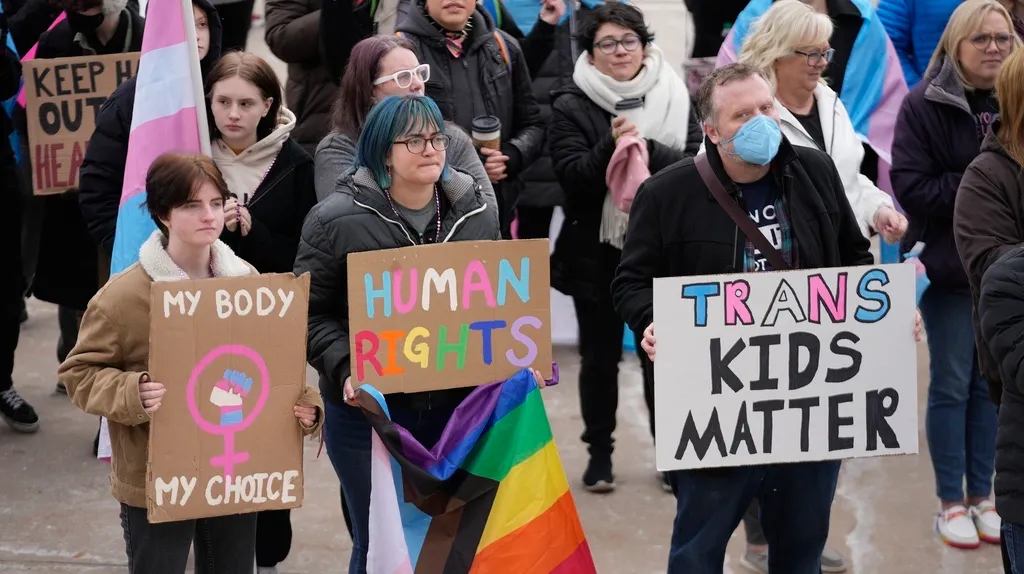December 1, 2015
Obama Prods World on Climate Change, Faces Pushback at Home
Nancy Benac READ TIME: 3 MIN.
Facing pushback at home, President Barack Obama said Sunday that American leadership was helping make gains in the global fight against climate change as he tried to reassure world leaders assembling for a historic conference in Paris that the U.S. can deliver on its own commitments.
Obama was joining more than 150 leaders for the opening days of a two-week conference where countries are trying to negotiate an agreement aimed at avoiding a calamitous increase in global temperatures. In a Facebook post as he flew to Paris, the president said he was "optimistic about what we can achieve because I've already seen America take incredible strides these past seven years."
At the summit's opening Monday, Obama and French President Francois Hollande were to join tech giant Bill Gates to announce new public and private efforts to dramatically increase spending around the globe on developing clean energy technologies that can help reduce greenhouse gas emissions. The U.S. and at least 19 other governments will pledge to double their clean energy research and development spending in the next five years, even as Gates and wealthy businessmen from 10 countries pledge billions more in private spending to encourage green energy innovation, the White House said.
For the U.S., that means doubling government spending on clean energy research to $10 billion over the next five years.
Energy Secretary Ernest Moniz, in a conference call with reporters, acknowledged that winning approval for those dollars would require "a complex discussion" with the Republican-controlled Congress. But he predicted that spending for research and innovation was more likely to attract bipartisan support from lawmakers than has financing for a U.N. fund to help poorer countries adapt to climate change. Senate Republicans have been working to block Obama's request for the first installment of his $3 billion pledge for the U.N. fund.
Eager to leave a legacy of environmental protection, Obama scheduled meetings with the leaders of China and India to underscore how developing nations are embracing the effort to combat climate change. Also on the agenda were sessions with the leaders of a few island nations, to highlight "the existential challenge" they face from rising sea levels, in the words of the president's deputy national security adviser, Ben Rhodes.
Obama, with just a year left in office, wants to lead the world by example on climate change. But he faces opposition at home that makes it harder for him to credibly make the case on the world stage that the U.S. will honor its promises.
The U.S. is the world's second largest climate polluter, surpassed only by China, and the president has pledged that the U.S. will cut its overall emissions by 26 percent to 28 percent by 2030.
But his climate action plan has run into stiff opposition from Republicans who control Congress. They say his commitment to reduce emissions from U.S. power plants would cost thousands of American jobs and raise electricity costs for businesses and families.
Half the states are suing to block the power plant rules, claiming Obama has abused his authority under the Clean Air Act. The president also faces congressional opposition to committing U.S. dollars to a U.N. Green Climate Fund designed to help poorer countries combat climate change.
Senate Majority Leader Mitch McConnell, in an opinion piece timed to coincide with Obama's trip to Paris, accused the president of being so concerned with his legacy that he "prioritizes symbolism over substance."
The Kentucky Republican wrote in The Washington Post on Sunday that Obama's international negotiating partners in Paris "should proceed with caution before entering into an unattainable deal with this administration, because commitments the president makes there would rest on a house of cards of his own making."
McConnell said Obama's energy plan is one that "Congress has voted to reject and that his successor could do away with in a few months' time."
___
Associated Press writers Sylvie Corbet, Seth Borenstein and Karl Ritter contributed to this report.


